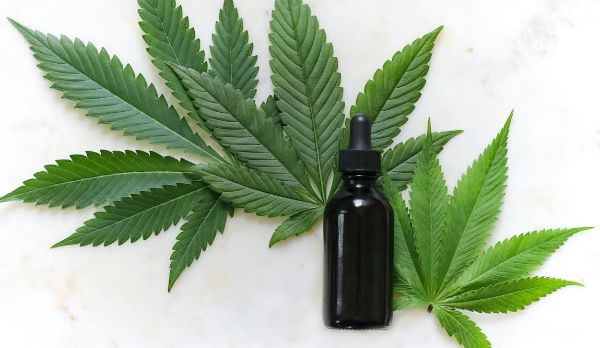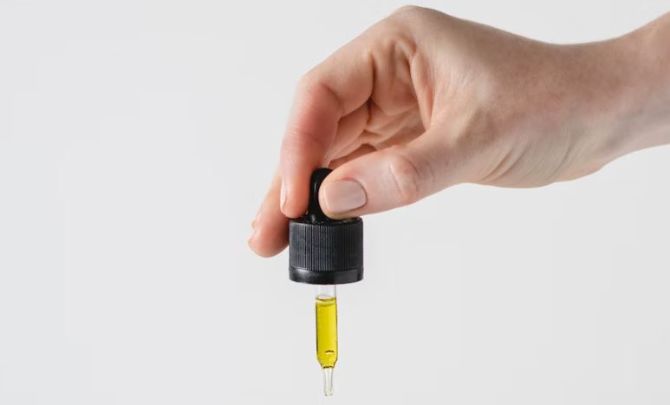Are you curious about Delta 8 THC and its effects? Do you have questions about its legality or safety? Look no further! In this article, we will be answering some of the most frequently asked questions about Delta 8 THC.
So sit back, relax, and let’s dive into the world of Delta 8 THC together! You can find more guides at D8 Super Store about Delta 8!
What is Delta 8 THC?
Delta 8 THC is a cannabinoid that occurs naturally in the cannabis plant. It is similar to Delta 9 THC, the active ingredient in marijuana, but has a different chemical structure. Delta 8 THC is legal in most states, but not all. It is available in various forms, including edibles, oils, and tinctures.

Delta 8 THC offers a number of potential benefits, including relief from anxiety and pain. It may also help improve appetite and sleep quality. Delta 8 THC is typically well tolerated, but side effects may include dry mouth, dizziness, and paranoia.
The Different Types of Delta 8 THC
There are three different types of Delta 8 THC:
1) The most common type is Delta 8 THC extract. This is the form of Delta 8 THC that is found in most products on the market. It is made by extracting Delta 8 THC from hemp flowers using CO2 or another solvent.
2) The second type is Delta 8 THC isolate. This form of Delta 8 THC is more pure and concentrated than extract. It is made by isolating Delta 8 THC from hemp flowers using a process like chromatography.
3) The third type is Delta 8 distillate. This is the most pure and concentrated form of Delta 8 THC. It is made by distilling Delta 8 THC from hemp flowers.
Pros and Cons of Delta 8 THC
Delta 8 THC is a potent cannabinoid that is found in cannabis plants. It has many potential medical benefits, but there are also some risks associated with its use. Here are some of the pros and cons of Delta 8 THC:
Pros:
• Delta 8 THC can provide relief from pain, anxiety, and nausea.
• It can also help to improve appetite and increase energy levels.
• Delta 8 THC is non-psychoactive, so it will not produce the “high” associated with other cannabinoids like delta 9 THC.
Cons:
• Delta 8 THC is a powerful cannabinoid, so it can potentially cause side effects like dizziness, paranoia, and anxiety.
• There is currently limited research on the safety and efficacy of Delta 8 THC, so its long-term effects are not yet known.
What are the Effects of Delta 8 THC?
As Delta 8 THC becomes more popular, people are wondering what the effects of this cannabinoid are. While Delta 8 THC is similar to Delta 9 THC in many ways, it does have some distinct effects that set it apart. Here’s what you need to know about the effects of Delta 8 THC.
Delta 8 THC is known for its psychoactive effects. This means that it can alter your state of mind and make you feel high. The high from Delta 8 THC is typically less intense than the high from Delta 9 THC, but it can still be quite noticeable. You may feel more relaxed, happy, and euphoric when you use Delta 8 THC. Some people also report feeling less anxious and more focused.
In addition to the psychoactive effects, Delta 8 THC also has some therapeutic benefits. This cannabinoid has been shown to help relieve pain, reduce inflammation, and even kill cancer cells. It’s also being studied for its potential to help treat anxiety and depression.
Do Not Miss: The Endocannabinoid System: How Medical Marijuana Interacts with the Body
So far, there haven’t been any major studies on the side effects of Delta 8 THC use. However, because this cannabinoid is similar to Delta 9 THC, it’s possible that some of the same side effects may occur. These include dry mouth, red eyes, increased heart rate, and paranoia. If you experience any of these side effects after using Delta 8 THC, be sure to stop using it and see a doctor right away.
How to Use Delta 8 THC
If you’re new to Delta 8 THC, you may be wondering how to use it. Here are a few tips:
Start with a low dose. Delta 8 THC is potent, so it’s best to start slow and increase your dose as needed.
Take it slow. Don’t smoke or vape Delta 8 THC if you’ve never used cannabis before. Start with edibles or tinctures, which will give you a more gradual and controlled experience.
Be mindful of your setting. Delta 8 THC can be intense, so make sure you’re in a comfortable environment where you can relax and take things slowly.
Listen to your body. Pay attention to how your body responds to Delta 8 THC and adjust your dose accordingly.
Alternatives to Delta 8 THC
While Delta 8 THC is the most common form of THC, there are other forms that can be used as well. These include:
-Delta 9 THC: This is the most common form of THC and is what is typically found in marijuana. It is the highest in psychoactive properties and can produce a strong high.
-Delta 10 THC: This form of THC is not as common, but it is known to be more potent than Delta 9. It can produce strong visual and auditory hallucinations.
-Delta 11 THC: This form of THC is even less common than Delta 10 and is said to be the most potent form of all. It can cause severe psychosis and should only be used by experienced users.
Conclusion
We hope this guide has addressed any and all questions you may have had about Delta 8 THC. From its legality to the potential health benefits, it is clear that Delta 8 THC is an ever-growing topic of interest that deserves attention.
Research into the long-term safety and effectiveness of Delta 8 products is ongoing, but one thing is certain: it can be a great addition to anyone’s wellness routine if used responsibly. If you are interested in trying out Delta 8 THC for yourself, research your options carefully before making any decisions so you can find a product that fits your needs perfectly.
